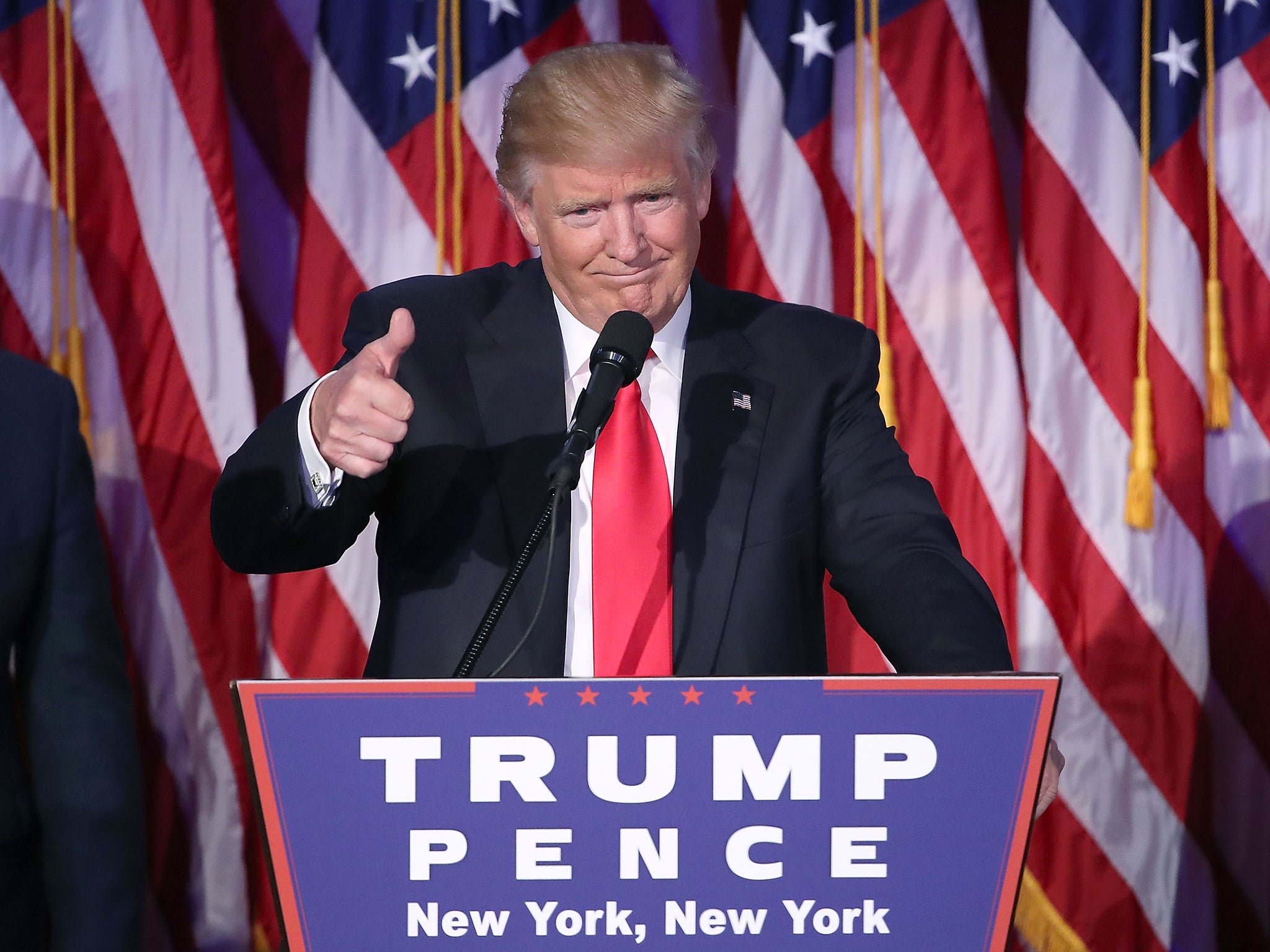Top Trump adviser says Israeli settlements are not an obstacle to peace

Your support helps us to tell the story
From reproductive rights to climate change to Big Tech, The Independent is on the ground when the story is developing. Whether it's investigating the financials of Elon Musk's pro-Trump PAC or producing our latest documentary, 'The A Word', which shines a light on the American women fighting for reproductive rights, we know how important it is to parse out the facts from the messaging.
At such a critical moment in US history, we need reporters on the ground. Your donation allows us to keep sending journalists to speak to both sides of the story.
The Independent is trusted by Americans across the entire political spectrum. And unlike many other quality news outlets, we choose not to lock Americans out of our reporting and analysis with paywalls. We believe quality journalism should be available to everyone, paid for by those who can afford it.
Your support makes all the difference.Israelis who support the Jewish presence in the occupied West Bank were buoyed Thursday after a top adviser to Donald Trump told an Israeli radio station that the president-elect does not view settlements as an obstacle to peace.
Speaking to Israel’s Army Radio, Jason Greenblatt, co-chairman of the Trump campaign’s Israel Advisory Committee, said: “It is certainly not Mr. Trump’s view that settlement activities should be condemned and that it is an obstacle for peace, because it is not an obstacle for peace.”
It is widely believed that Greenblatt may be appointed Trump’s envoy to the Middle East.
If Trump’s position on Israeli settlements holds true, it would mark a sharp departure from the administration of outgoing President Obama. Throughout his nearly eight years in the White House, Obama spoke out strongly against Israeli expansion of Jewish settlements, which sit on land that Palestinians seek as part of a future state.
The consistent message of Obama’s administration was that allowing the settlements to grow makes achieving a peace deal between Israelis and Palestinians more difficult. Last month, the U.S. State Department condemned Israeli plans to build 300 additional units in the settlements, saying they “would further damage the prospects for a two-state solution.”
In response to Greenblatt’s message, Ofer Akunis, a senior Israeli government minister, said he was happy that the onus for achieving peace was no longer on whether Israel did or did not build in the settlements. He urged Israeli Prime Minister Benjamin Netanyahu to start building immediately.
Oded Revivi, chief foreign envoy for the YESHA Council, an organisation representing more than 430,000 Israelis who live in Israeli settlements, also welcomed Greenblatt’s comments.
“Israeli towns in Judea and Samaria are the answer to peace, enabling Israelis and Palestinians to live and work together. We hope to continue building a peaceful future with the blessing of the new Trump administration,” said Revivi, who is also the mayor of Efrat, one of the largest Israeli settlements.
Israelis refer to the West Bank by its biblical name, Judea and Samaria.
David Makovsky, a fellow with the Washington Institute for Near East Policy, noted that for the first time since Netanyahu became prime minister in 2009, he will be dealing with a Republican president. Makovsky predicted that Netanyahu and Trump will enjoy an initial honeymoon period.
But he warned that the relationship could face challenges if the two leaders are confronted with different aims on substantive issues such as Israeli-Palestinian peace talks.
“At what point does the honeymoon wear off and the Trump that emerges is the Trump dedicated to the art of the deal?” he said. “At what point does the bonding between these two diverge if he thinks Netanyahu doesn’t want to do a deal, or a deal that’s not doable?”
Makovsky cautioned that the right wing in Netanyahu’s government may view the Trump position on settlements as an open invitation for settlement expansion, which could provoke a clash if the Trump administration wants to resume the peace process.
Also on Thursday, Israelis discussed the prospect of the Trump administration moving the U.S. Embassy from Tel Aviv to Jerusalem, keeping a promise made by Trump earlier this year. The lack of a U.S. embassy in Jerusalem has been a point of contention between the two allies since Israel’s founding in 1948. Another of Netanyahu’s ministers, Tzahi Hanegbi, said he was hopeful that Trump would follow through.
“Every time there is a new president, he is told by the State Department: ‘You can’t do that. If you do, there will be bloody demonstrations in the Arab world. Americans will be killed all over the Muslim world,’” Hanegbi told Israel Radio. “We are not talking about moving the embassy to East Jerusalem; we’re talking about West Jerusalem. This is a fundamental issue. The U.S. has never recognised Jerusalem as Israel’s capital since 1948. This is a scandal with no justification.”
Carol Morello in Washington contributed to this report.
The Washington Post
Join our commenting forum
Join thought-provoking conversations, follow other Independent readers and see their replies
Comments